Ciencia Política y
Estudios Internacionales
—
Una sólida formación multidisciplinaria para analizar problemáticas complejas en un contexto cambiante.
En los medios

Rousseff’s win is good news for Mercosur
Brazil votes. Incumbent has vowed to strengthen relations with bloc despite pressure to open up
The Mercosur regional bloc got some very good news last night when the Brazilian Electoral Court announced that President Dilma Rousseff had won re-election.
The Brazilian president has been one of the bloc’s most vocal defenders and, unlike her challenger Aécio Neves, firmly believes it is key to maintaining cordial relations with many of the country’s Latin American neighbours.
Despite internal pressure from the Brazilian industrial elite for the country to move forward in terms of regional integration, Rousseff’s administration has abstained from putting too much pressure on Mercosur members and has been especially cautious when dealing with Argentina and its protectionist measures — a tactic that analysts have come to refer to as “strategic patience.”
Business-friendly Neves has been, on the contrary, quite opposed to this “patience” and often criticized the Rousseff administration for letting “ideology” influence its decisions regarding trade.
The Social Democratic candidate insisted that Brazil should open up to the rest of the world and frequently hit out at the president for putting all of its eggs in the same basket by focusing excessively on the country’s “neighbours.”
Friendly neighbours
Analysts agree that politics have played a big role in defining Brasilia’s position toward Mercosur and critics have often argued that the bloc has become more about solidarity among leftist countries than about trade.
Along with the presidents of Argentina and Uruguay, Rousseff was among the Mercosur leaders that welcomed Venezuela into the bloc in 2012, even when the Paraguayan Congress was dead set against allowing the country — and its Socialist government — to enter.
However, at least for Brazil,it hasn’t been all ideology.
Although China has become Brazil’s most important trade partner, Argentina still buys an important part of the manufactured goods that Brazil exports and that alone has motivated the Rousseff administration to keep its “strategic patience” in place.
In terms of foreign policy, Rousseff’s victory in yesterday’s election means that the Mercosur can sigh in relief, at least for now.
“It means that the south-south agenda, the Mercosur agenda and the Unasur agenda will remain in place,” Mónica Hirst, a leading Brazilian analyst and Di Tella University professor, told the Herald.
“The principles that have been guiding Brazil’s foreign policy until now will probably remain the same,” she added.
The ruling Workers’ Party’s programme ahead of yesterday’s election called for the strengthening of multilaterallism and underlined the need to deepen relations with Mercosur, Unasur and the Community of Latin American and Caribbean States (CELAC), including Communist-run Cuba.
The programme also defended the signing of a FTA with the European Union, even though Argentina has showed some reluctance toward moving forward with the agreement.
A more ‘independent’ position
Neves also favoured the signing of a FTA with the EU bloc and was willing to scrap Mercosur’s provision requiring the whole bloc to agree to any negotiations with third countries.
If Argentina and Venezuela had opposed, he would have dared go after a structural reform of the regional trade union that, some argue, would have endangered its very existence.
Under Neves, “priorities would have changed and a new model of foreign relations would have probably emerged,” Hirst explained. “A PSDB government would have probably had a more pragmatic vision, more centred on supposed economic interests,” she added.
During the campaign, Neves also slammed Rousseff’s positions on the international arena, where, he argued, she let ideology permeate her views.
The PSDB candidate often vowed to keep a more “independent” line if he were elected and criticized the ruling Workers’ Party for being vocal in its opposition to the US-led action against ISIS in Iraq and Syria, but not Russia’s takeover of Crimea.
His campaign also hit out at the government’s position regarding Israel’s most recent incursion into the Gaza Strip, which the Rousseff administration didn’t hesitate to call a “massacre,” leading to a diplomatic backlash by the Israeli government.
Conocé nuestros programas
Nuestra oferta académica está diseñada para formar profesionales capaces de liderar en ámbitos académicos, políticos y sociales.

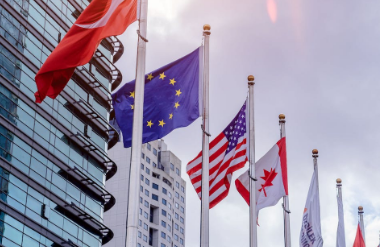
Aprendé con
los mejores
Nuestro cuerpo docente se distingue por su rigurosa formación doctoral en las universidades más prestigiosas del mundo. Su alta dedicación y su conocimiento y experiencia internacional los habilitan para desempeñarse exitosamente en distintos ámbitos y proveer a los/as estudiantes de una sólida formación multidisciplinaria.
en Argentina para dictar
clases de grado y posgrado.
Fuente: Ranking Teaching, Research and International Policy (TRIP) International Relations Survey, 2014.
La Di Tella está entre las 150 mejores universidades del mundo en el área de Ciencia Política.
(Fuente: QS World University Rankings 2023)
Conocé a nuestro cuerpo docente
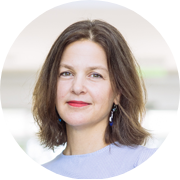
Jennifer Cyr
Ph.D. in Political Science, Northwestern University.

Sebastián Etchemendy
Ph.D. in Political Science, University of California at Berkeley.
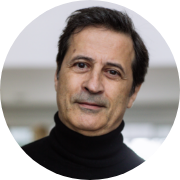
Enrique Peruzzotti
Ph.D. in Sociology, New School for Social Research.
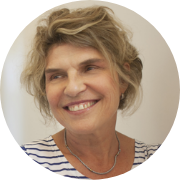
Catalina Smulovitz
Ph.D. in Political Science, The Pennsylvania State University.
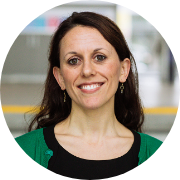
Hayley Stevenson
Ph.D. in International Relations, University of Adelaide.
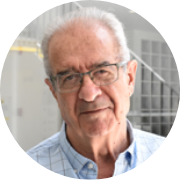
Juan Carlos Torre
Docteur en Sociologie, École des Hautes Études en Sciences Sociales.
Novedades
Reuniones informativas
Agenda
Cátedras y centros de investigación
Un espacio académico para el análisis, conocimiento y difusión del país de manera integral. Tiene el propósito de establecer un ámbito plural desde el cual enriquecer el diálogo entre Argentina y Colombia.
Una iniciativa conjunta de la Universidad Torcuato Di Tella, la Embajada de Francia en Argentina y el Instituto Franco Argentino que tiene por objetivo promover el intercambio académico y el diálogo.
de cambios en Cuba
El proyecto "Tiempo de cambios y el nuevo rol de las fuerzas armadas en Cuba" busca informar a actores que sean disidentes y críticos de las fuerzas armadas revolucionarias de Cuba (FAR) de dos maneras diferentes.
Departamento de Admisiones
Contacto


